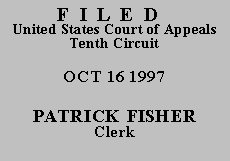

| UNITED STATES OF AMERICA,
vs.
TONY BENCOMO |
|
Mr. Bencomo's second § 2255 motion would appear to be barred absent a showing of cause and prejudice, or a fundamental miscarriage of justice, given his failure to raise the double jeopardy claim earlier. Although not raised by the government, this obvious problem may be raised by the court sua sponte provided the Defendant is given notice and an opportunity to respond. See Williams v. Whitley, 994 F.2d 226, 230-32 (5th Cir.), cert. denied, 510 U.S. 1014 (1993); United States v. Fallon, 992 F.2d 212, 213 (8th Cir. 1993). Regardless, Mr. Bencomo's double jeopardy claim is also barred by the provision in the plea agreement waiving any right to contest his sentence in any postconviction proceeding under § 2255. See United States v. Wilkes, 20 F.3d 651, 653 (5th Cir. 1994). See also I R. doc. 6, ex. A at 5 (plea agreement), ex. B at 8 (plea transcript). Finally, new arguments raised by Mr. Bencomo in his opening brief on appeal will not be considered.
AFFIRMED. The mandate shall issue forthwith.
Entered for the Court
Paul J. Kelly, Jr.
Circuit Judge
*. This order and judgment is not binding precedent, except under the doctrines of law of the case, res judicata, and collateral estoppel. This court generally disfavors the citation of orders and judgments; nevertheless, an order and judgment may be cited under the terms and conditions of 10th Cir. R. 36.3.
**. After examining the briefs and the appellate record, this three-judge panel has determined unanimously that oral argument would not be of material assistance in the determination of this appeal. See Fed. R. App. P. 34(a); 10th Cir. R. 34.1.9. The cause is therefore ordered submitted without oral argument.